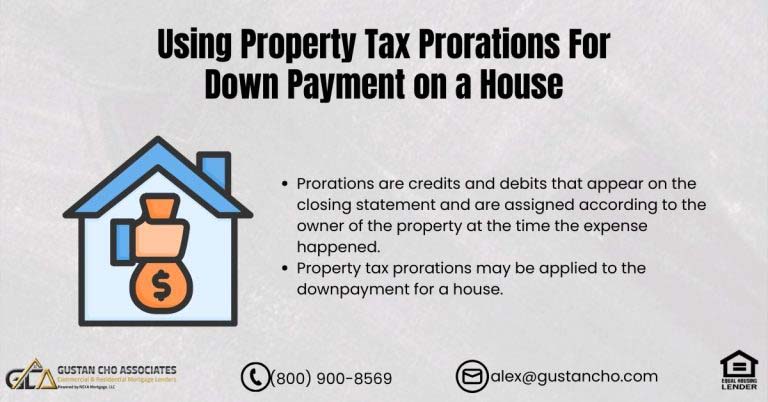This guide covers property tax appeal for homeowners with high property taxes. Property Taxes are one of the highest expenses homeowners have. Not all properties that are like and similar have the same property taxes. Dale Elenteny, a senior loan originator at Gustan Cho Associates says the following about property tax appeal:
Property taxes vary from state to state, county to county, city to city. Homeowners with high property taxes can do property tax appeal to potentially lower them.
There is no reason why homeowners should pay higher taxes on their property if their neighbors are paying lower amounts. On this blog. we will discuss how tax appeal works on property taxes and steps in lowering them.
Property Tax Appeal for Homeowners: Save Money on High Property Taxes
High property taxes can hurt your wallet, especially when the assessed values feel off the charts. Luckily, there’s a way to fight back: the property tax appeal. This step-by-step guide walks you through the appeal process, showing you how to lower your bill without going crazy. If your tax bill keeps climbing or your home’s assessed value seems too high, stick with us. We’ll help you turn numbers back in your favor.
Overpaying on Property Taxes? We Can Help You Appeal
Get expert help to challenge your property tax assessment and potentially lower your bill.
What’s a Property Tax Appeal?
A property tax appeal is your chance to argue that your home’s assessed value—set by the tax office—needs a downgrade. Property taxes usually come from multiplying the assessed value of your house by your town’s tax rate. If that assessed value is higher than what your house is worth on the market, you’re probably overpaying. Win the appeal, and your home’s assessed value is slashed, meaning smaller tax payments.
Why Are Property Taxes Too High?
A few common problems can pump up your property tax bill:
- Incorrect Assessments: Mistakes in the tax office’s files, such as incorrect square footage or old property details that haven’t been updated.
Navigating Your Property Tax Appeal
- Market Fluctuations: Your assessment still claims values that ignore recent local price drops.
- Overvaluation: The number on your notice is higher than your home is worth.
- Discrepancies in Comparable Properties: Nearby houses like yours have lower figures.
Understanding these points is the first step toward a winning appeal.
Why Appeal Your Property Taxes?
Lowering your assessed value means lower taxes. Slice $50,000 off your number and, at a 2% rate, that’s $1,000 back in your pocket each year. The win is not just dollars; it’s fairness and correcting mistakes that could haunt future bills. The catch? Appeals take time, paperwork, and patience. Always weigh the potential refund against the work ahead.
Simple Steps to File an Appeal
Grab Your Assessment
Get your latest assessment from the local office or their website. Look for mistakes in:
- Property Details: Double-check the square footage, how many bedrooms and baths there are, and any unique features.
- Exemptions: Make sure you have every break you qualify for, like homestead or senior discounts.
Check the Assessed Value Against Recent Sales
Compare the assessed value on your notice with the latest sale prices or appraisals of similar homes nearby. If the assessed value is higher than the average of these sales, write it down. This shows the assessor that your value may be too high and supports your appeal.
Know the Deadlines and Appeal Steps
Every city and county has rules and deadlines for appealing a property tax value. Usually, you can find these on your local assessor’s website or the notice that came with your assessment. Rules often say you must file within 30 to 60 days of the notice date. Move fast, because missing that date means waiting another year to appeal.
Collect Evidence for Your Appeal
You need solid proof to convince the hearing officer that your assessment is too high. Gather the following items:
- Recent Appraisal: Hire a certified appraiser to give you a current value for your home.
- This report is very important.
- Comps Data: Look for recent sales of similar homes in your area.
- Pick homes that are close in size, age, condition, and location.
- Check sites like Zillow, Redfin, or your local records.
- Photos and Records: Take pictures of anything that lowers your property’s value, such as water damage, old appliances, or a roof that needs repair.
- Bring records like repair invoices or inspection reports.
- Assessment Records of Similar Properties: Pull records showing that nearby homes sold for less, and check that their assessments are lower too.
- If those homes are similar yet taxed lower, that’s a strong sign your value should drop.
File Your Property Tax Appeal
Take your proof and submit it to whoever handles property disputes in your county—usually the county assessor’s office or a local review board. Here’s how to file right:
- Complete All Forms Accurately: Use the official appeal forms the office provides and complete them. Errors can delay the review.
- Include Supporting Evidence: Staple your independent appraisal, the comparable sales you found, photos of your property, and any other proof.
- Be Clear and Concise: Write a short statement explaining why the new value is wrong and match each reason to the proof you attached.
Many places let you file forms online, but check because some require a paper copy to be mailed or dropped off in person.
High Property Taxes? Let Us Help You Appeal Your Assessment
Learn how to lower your property tax burden by filing an appeal with professional guidance.
Prepare for the Property Tax Appeal Hearing
Chances are, you’ll need to speak at a hearing. Here’s how to get ready:
- Organize Your Evidence: Make a neat slide deck or binder highlighting the strongest Evidence.
- Graphs, before-and-after photos, and side-by-side value tables are helpful.
- Practice Your Argument: Stand in front of a mirror and rehearse how the wrong value harms you and why the Evidence you brought provides a fair lower value.
- Understand Local Policies: Read the rules on how your county weighs a property’s value and what criteria it uses.
At the hearing, stay calm and stick to numbers, not feelings. Saying the assessment is wrong is less powerful than showing it is. Your professionalism boosts your case.
Follow Up on the Decision of Property Tax Appeal
Once the hearing is over, you’ll get a letter with the official decision. If you win, the new assessed value will appear on your next tax bill. If the board decides against you, you can usually take the next step with a state tax appeals board or possibly a court. Remember, those routes can get expensive, so weigh your options carefully.
Tips for a Successful Property Tax Appeal
- Act Promptly: Keep an eye on those filing deadlines. They’re set in stone.
- Be Thorough: Gather every piece of Evidence you can. The more, the better.
- Consider Professional Help: If the paperwork feels like a maze or your property is worth a lot, hiring a tax consultant or attorney might pay off.
- Many charge a percentage of the tax savings, so you only pay if you win.
- Check for Exemptions: Even if your appeal flops, you might still qualify for exemptions that can lower your bill.
- Monitor Future Assessments: Winning an appeal doesn’t guarantee a low value forever.
- Check your property value every year.
Common Property Tax Appeal Mistakes to Avoid
- Failing to Provide Evidence: Saying, “My taxes are too high,” doesn’t cut it. Bring facts, not feelings.
- Using the Wrong Comparables: Always pick comps that closely match your property in size, age, and neighborhood.
- A nearby four-bedroom home built in 2005 tells a different story from a two-bedroom condo built in 1980.
- Missing Deadlines: File your appeal on time.
- Once deadlines pass, the assessor’s decision is final, no matter how strong your case is.
- Set reminders and double-check local calendar dates.
Overlooking Small Savings
A $100 drop in your assessment may seem small, but it compounds yearly. If the assessor makes a mistake, argue it. Small gains lead to big results when interest is factored in.
When to Get Help
Consider hiring a pro when your assessed value is way above market value or the appeal path looks confusing. Property tax consultants and lawyers know the local codes, gather the right data, and represent you at hearings. Find local specialists with good reviews and ask for a clear list of fees before signing.
How to Appeal Your Property Tax Bill Before It Costs You
Property tax bills can jump like unexpected rent hikes. If your tax assessment feels too high, use your right to appeal. A solid appeal can shrink your tax bill by hundreds or even thousands. Here’s a step-by-step guide to help you gather facts, file on time, and fight back.
Step 1: Get Familiar with Your Assessment
The first step is to check your latest assessment. You can usually find this on your local assessor’s office website. Look for your property’s assessed value, usually on a PDF or assessment card.
While you’re there, note your “jurisdiction’s” total value. Compare your figure to that total. If your value is way out of line with similar homes on your street or block, you may already have a reason to appeal.
Step 2: Gather Solid Evidence
Next, stack up your Evidence like a mini lawyer. Start with recent sales of comparable homes (often called “comps”) in your neighborhood. Select 3 to 5 homes that sold in the last year. If the sales prices are lower than your assessed value, those prices become your best Evidence.
The local assessor’s office may have a sales search tool you can use. Download the sales data and create a simple chart that shows the sale prices alongside your assessed value.
If your home has any drawbacks the assessor missed—like a leaky roof, old furnace, or busy road out front—take photos and get repair estimates. Print these and attach them to your appeal. Keep in mind that even small details can add up. If the assessor has the wrong square footage, wrong number of bedrooms, or old photos, those errors can help your case.
Step 3: Follow Local Instructions to File Your Appeal
Every jurisdiction has rules, so check your local assessor’s office for the exact forms and deadlines. Most places let you file online, by mail, or in person.
Fill out the appeal form carefully. You’ll usually need to state why you think the value is too high, attach your sales data, and any images that support your case. Be polite, factual, and to the point.
Don’t forget to file on time. Most places have a short window—sometimes only 30 days after you get the tax bill. Put reminders in your phone to make sure you hit the deadline.
Step 4: Be Ready for a Hearing
After you file, the assessor’s office will usually give you a date for a hearing. Prepare a simple presentation. Start with your chart of sale prices, show your photos, and explain any errors in a calm voice.
You don’t need a lawyer, but if you feel nervous, you can hire a tax consultant or lawyer who knows the local rules. Sometimes an expert can negotiate a settlement to lower your bill without a hearing.
Final Step: Accept or Appeal Again
After the hearing, the assessor’s office will mail you a written decision. The new value will appear on your next tax bill if you win. If you lose, check if you can appeal to your state’s tax court or a higher board. Many places allow a second chance to argue your case.
Take Action Now
If you think your assessment is too high, don’t wait. Statutes don’t get kinder after deadlines. File your appeal, gather your facts, and attend your hearing.
Have you successfully appealed your property taxes before? Tell us how you did it in the comments below! Contact your local assessor’s office this week if you’re ready to start your appeal. For more tips that help homeowners keep more of their cash, hit the “subscribe” button to stay in the loop!
Paying Too Much in Property Taxes? We Can Help You Save
Challenge your property tax assessment and possibly reduce your taxes—starting now.
Property Tax Appeal Process
Homeowners with higher taxes on their homes can do property tax appeal to the county assessors office. Assessed value of home is the factor used to calculate taxes for homeowners and how much they owe.
The way property tax appeal works are to prove to county assessor that the property is worth less than its assessed value. Homeowners do not need an attorney to do property tax appeal.
They can start by going on the internet and doing basic research about the value of their home. Or consult a local realtor who is familiar with the area. Once homeowners have facts their property value is higher than the norm, it normally takes several months for the tax appeal process.
Review Home Assessment Letter By County Assessor’s Office And Property Tax Appeal Process
The County Assessor’s Office will randomly and periodically assess all properties in their county. They tax properties based on their assessed value. After an officer of the County Assessor’s Office determines the assessed value, they send statements of their findings to taxpayers. The assessment will state and list basic factual information about the subject property. This includes the legal description, size of the lot, and the value of the property.
How Assessors Determine How Much Tax Homeowners Should Pay
Assessors will determine property taxes by multiplying property assessed value by the county’s local tax rate. This tax rate will vary from one city to another and one county to another. Homeowners who find their assessment is higher than normal comparable properties need to start the property tax appeal process as soon as possible. There is a time frame homeowners are allowed to file a property tax appeal. The assessment statement should have specific instructions on how to do a tax appeal.
How Much Are Your Taxes Higher Than Comparable Homes And Reason For Property Tax Appeal
The first thing homeowners need to determine is if their taxes are substantially higher than comparable homes in their neighborhoods. John Strange, a senior loan officer at Gustan Cho Associates says the follow about property tax appeal:
Most homeowners tax rate is between 1% to 2% of their home’s values. However, there are homes that are valued at $100,000 and the tax is $10,000. Cases like these, homeowners should benefit from tax appeal.
Property taxes can vary greatly from one town to another town. An average $250,000 home can have taxes of $2,000 a year in one city but $5,000 in another town. Do not always assume that the county assessor is right. Many times home with $1,000 in taxes can have another comparable home next door with $4,000 in taxes.
Review Assessment Statement For Errors
When homeowners get their property assessment statements, make sure it is correct with no errors. Specific attention should be given to the number of bedrooms and bathrooms. Is the size of the lot correct? Errors do occur and most homeowners do not pay attention. Finished basements and attics do not count as living spaces. However, an assessor can count bedrooms and bathrooms in the basement and attics as livable spaces thus increasing assessed values.
Researching Comparable Sales And Properties
Sales of properties in the neighborhood are public records. Homeowners should be able to check for comparable sales in the area. Or better yet, ask a real estate agent in the area for 3 to 5 comparable sales. Alex Carlucci, a mortgage loan officer at Gustan Cho Associates says the following about property tax appeal:
Websites like realtor.com list comparable sales in your area. Worst case scenario, homeowners can hire their own home appraisers and get an accurate appraisal.
Comparable sales are listed on home appraisals. Things to look for in comparable sales is to check assessments on the property. Most county agencies have public tax information listed. If other properties that are similar and like your have lower assessments, you then have a strong case to do a property tax appeal and win.
Contact County Property Assessors Office
Every county has its own property tax appeal process. Many rural counties will take taxpayers phone calls and discuss their case scenario over the phone. Some require a formal filing of a petition. Others allow it to be done online. Contact the assessor’s office and learn what their property tax appeal process is like. Tax Appeal cases can take time. Time varies upon the municipality.
Board Review Results and Options For Taxpayers
There are instances where taxpayers get denied their property tax appeal. Decisions of tax appeals can be appealed by homeowners. It is normally appealed to an independent agency. There are fees involved which are normally very nominal. Again, this can take months or more than a year. Alex Carlucci, a senior mortgage loan originator at Gustan Cho Associates says the following about property tax appeal:
The board of appeals can only lower property assessment and not the tax rate. On the flip side, an appeal on the county assessors decision can backfire on homeowners and the board can increase the asses value.
If this is the case, property taxes will increase and not decrease. Homeowners can also explore homeowners’ savings to see if they qualify for property tax exemptions. Many counties and/or towns offer property tax exemptions to homeowners based on military service disability, age, and other factors.
Fight High Property Taxes—Start Your Appeal Today
Don’t let high property taxes drain your wallet. Learn how to reduce your tax bill.








